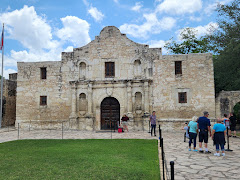Frequently Asked Questions About the Home Buyer Tax Credit
The American Recovery and Reinvestment Act of 2009 authorizes a tax credit of up to $8,000 for qualified first-time home buyers purchasing a principal residence on or after January 1, 2009 and before December 1, 2009.The following questions and answers provide basic information about the tax credit. If you have more specific questions, we strongly encourage you to consult a qualified tax advisor or legal professional about your unique situation.
1. Who is eligible to claim the tax credit? First-time home buyers purchasing any kind of home—new or resale—are eligible for the tax credit. To qualify for the tax credit, a home purchase must occur on or after January 1, 2009 and before December 1, 2009. For the purposes of the tax credit, the purchase date is the date when closing occurs and the title to the property transfers to the home owner.
2. What is the definition of a first-time home buyer?The law defines "first-time home buyer" as a buyer who has not owned a principal residence during the three-year period prior to the purchase. For married taxpayers, the law tests the homeownership history of both the home buyer and his/her spouse.For example, if you have not owned a home in the past three years but your spouse has owned a principal residence, neither you nor your spouse qualifies for the first-time home buyer tax credit. However, unmarried joint purchasers may allocate the credit amount to any buyer who qualifies as a first-time buyer, such as may occur if a parent jointly purchases a home with a son or daughter. Ownership of a vacation home or rental property not used as a principal residence does not disqualify a buyer as a first-time home buyer.
3. How is the amount of the tax credit determined?The tax credit is equal to 10 percent of the home’s purchase price up to a maximum of $8,000.
4. Are there any income limits for claiming the tax credit?The tax credit amount is reduced for buyers with a modified adjusted gross income (MAGI) of more than $75,000 for single taxpayers and $150,000 for married taxpayers filing a joint return. The tax credit amount is reduced to zero for taxpayers with MAGI of more than $95,000 (single) or $170,000 (married) and is reduced proportionally for taxpayers with MAGIs between these amounts.
5. If my modified adjusted gross income (MAGI) is above the limit, do I qualify for any tax credit?Possibly. It depends on your income. Partial credits of less than $8,000 are available for some taxpayers whose MAGI exceeds the phaseout limits.
6. How is this home buyer tax credit different from the tax credit that Congress enacted in July of 2008?The most significant difference is that this tax credit does not have to be repaid. Because it had to be repaid, the previous "credit" was essentially an interest-free loan. This tax incentive is a true tax credit. However, home buyers must use the residence as a principal residence for at least three years or face recapture of the tax credit amount. Certain exceptions apply.
7. How do I claim the tax credit? Do I need to complete a form or application?Participating in the tax credit program is easy. You claim the tax credit on your federal income tax return. Specifically, home buyers should complete IRS Form 5405 to determine their tax credit amount, and then claim this amount on Line 69 of their 1040 income tax return. No other applications or forms are required, and no pre-approval is necessary. However, you will want to be sure that you qualify for the credit under the income limits and first-time home buyer tests.
8. What types of homes will qualify for the tax credit?Any home that will be used as a principal residence will qualify for the credit. This includes single-family detached homes, attached homes like townhouses and condominiums, manufactured homes (also known as mobile homes) and houseboats. The definition of principal residence is identical to the one used to determine whether you may qualify for the $250,000 / $500,000 capital gain tax exclusion for principal residences.
9. I read that the tax credit is "refundable." What does that mean?The fact that the credit is refundable means that the home buyer credit can be claimed even if the taxpayer has little or no federal income tax liability to offset. Typically this involves the government sending the taxpayer a check for a portion or even all of the amount of the refundable tax credit.For example, if a qualified home buyer expected, notwithstanding the tax credit, federal income tax liability of $5,000 and had tax withholding of $4,000 for the year, then without the tax credit the taxpayer would owe the IRS $1,000 on April 15th. Suppose now that the taxpayer qualified for the $8,000 home buyer tax credit. As a result, the taxpayer would receive a check for $7,000 ($8,000 minus the $1,000 owed).
10. I purchased a home in early 2009 and have already filed to receive the $7,500 tax credit on my 2008 tax returns. How can I claim the new $8,000 tax credit instead?Home buyers in this situation may file an amended 2008 tax return with a 1040X form. You should consult with a tax advisor to ensure you file this return properly.
11. Instead of buying a new home from a home builder, I hired a contractor to construct a home on a lot that I already own. Do I still qualify for the tax credit? Yes. For the purposes of the home buyer tax credit, a principal residence that is constructed by the home owner is treated by the tax code as having been "purchased" on the date the owner first occupies the house. In this situation, the date of first occupancy must be on or after January 1, 2009 and before December 1, 2009.In contrast, for newly-constructed homes bought from a home builder, eligibility for the tax credit is determined by the settlement date.
12. Is a tax credit the same as a tax deduction? No. A tax credit is a dollar-for-dollar reduction in what the taxpayer owes. That means that a taxpayer who owes $8,000 in income taxes and who receives an $8,000 tax credit would owe nothing to the IRS.A tax deduction is subtracted from the amount of income that is taxed. Using the same example, assume the taxpayer is in the 15 percent tax bracket and owes $8,000 in income taxes. If the taxpayer receives an $8,000 deduction, the taxpayer’s tax liability would be reduced by $1,200 (15 percent of $8,000), or lowered from $8,000 to $6,800.
13. I bought a home in 2008. Do I qualify for this credit?No, but if you purchased your first home between April 9, 2008 and January 1, 2009, you may qualify for a different tax credit.
14. For a home purchase in 2009, can I choose whether to treat the purchase as occurring in 2008 or 2009, depending on in which year my credit amount is the largest? Yes. If the applicable income phaseout would reduce your home buyer tax credit amount in 2009 and a larger credit would be available using the 2008 MAGI amounts, then you can choose the year that yields the largest credit amount.
Thursday, February 26, 2009
Tuesday, February 17, 2009
New Stimulus Package: Taxes and the Housing Market
Taxes
The recovery package has tax breaks for families that send a child to college, purchase a new car, buy a first home or make the one they own more energy efficient.
Millions of workers can expect to see about $13 extra in their weekly paychecks, starting around June, from a new $400 tax credit to be doled out through the rest of the year. Couples would get up to $800. In 2010, the credit would be about $7.70 a week, if it is spread over the entire year.
A $1,000 child tax credit would be extended to more low-income families that don't make enough money to pay income taxes, and poor families with three or more children will get an expanded earned income tax credit.
Middle-income and wealthy taxpayers will be spared from paying the alternative minimum tax, which was designed 40 years ago to make sure wealthy taxpayers paid at least some tax but was never indexed for inflation. Congress fixes it each year, usually in the fall.
Housing:
First-time homebuyers who purchase their homes before Dec. 1 will be eligible for an $8,000 tax credit, and people who buy new cars before the end of the year can write off the sales taxes.
Homeowners who add energy-efficient windows, furnaces and air conditioners can get a tax credit to cover 30% of the costs, up to a total of $1,500.
The recovery package has tax breaks for families that send a child to college, purchase a new car, buy a first home or make the one they own more energy efficient.
Millions of workers can expect to see about $13 extra in their weekly paychecks, starting around June, from a new $400 tax credit to be doled out through the rest of the year. Couples would get up to $800. In 2010, the credit would be about $7.70 a week, if it is spread over the entire year.
A $1,000 child tax credit would be extended to more low-income families that don't make enough money to pay income taxes, and poor families with three or more children will get an expanded earned income tax credit.
Middle-income and wealthy taxpayers will be spared from paying the alternative minimum tax, which was designed 40 years ago to make sure wealthy taxpayers paid at least some tax but was never indexed for inflation. Congress fixes it each year, usually in the fall.
Housing:
First-time homebuyers who purchase their homes before Dec. 1 will be eligible for an $8,000 tax credit, and people who buy new cars before the end of the year can write off the sales taxes.
Homeowners who add energy-efficient windows, furnaces and air conditioners can get a tax credit to cover 30% of the costs, up to a total of $1,500.
Subscribe to:
Posts (Atom)








































































































































































